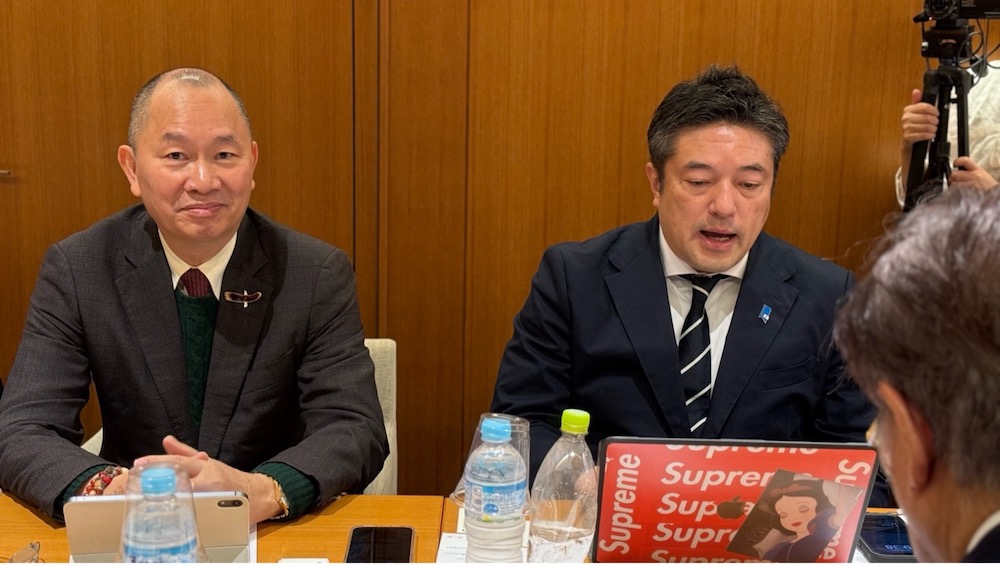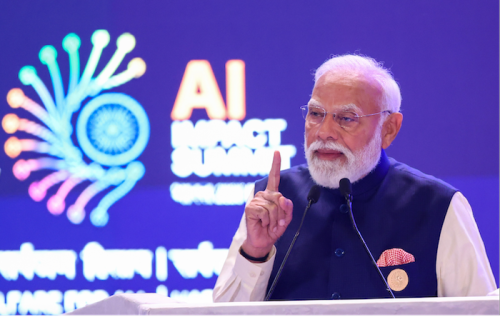Distinguished Speech by Yasuhide Nakayama at the 4th Shinzo Abe Conference, Tokyo, March 28, 2025
Today, the world stands at the beginning of an era unlike any before―a time of tremendous technological change. Among these changes, artificial intelligence (AI) is already transforming how our economies and societies function, and the financial world is no exception.
We must guide this transformation so that it leads to prosperity and safety for all people. The proposal I present today―the Abe Financial AI Protocol―is a framework inspired by the vision and values of the late Prime Minister Shinzo Abe. It provides direction for how financial systems should operate in the age of AI.
Prime Minister Abe always based his policies on universal values: freedom, democracy, the rule of law, and human dignity. The Abe Financial AI Protocol is also built on these principles. It aims to create a financial system that is open and secure, where trust and transparency support innovation. This protocol reflects the idea of “Society 5.0”― a society where technology serves people―and embraces the concept of “Data Free Flow with Trust (DFFT),” which Japan has championed on the global stage.
With these frameworks, we seek to make sure AI brings benefits to many, while protecting human rights and dignity.
Prime Minister Abe often said, “Without economic revitalization, there can be neither national prosperity nor national security.” This belief is at the heart of the economic strategy behind this protocol. By using financial technologies (fintech) and AI, we can drive economic growth, improve financial services, and create new industries. In doing so, we can once again revitalize Japan’s economy and tackle long-term challenges such as our aging population. These efforts carry forward the spirit of Abenomics―a policy focused on inclusive growth that reaches all citizens.
At the same time, innovation must always go hand-in-hand with safety and security. In the financial world, the misuse of AI can pose serious threats―from destabilizing the economy to disrupting daily life.
We must protect society against AI-driven financial crimes, cyberattacks on infrastructure, and the harmful use of new technologies. Just as Prime Minister Abe strengthened Japan’s national security under the idea of “Proactive Contribution to Peace,” this protocol places great importance on defending our financial systems in the AI era. We must update legal frameworks, ensure transparency in algorithms, and give our regulators and law enforcement the tools they need to keep us safe.
In addition, allow me to speak from the perspective of a politician. Japan once achieved remarkable postwar recovery and high economic growth as a nation built on “processing trade.”
Please see full here:
The Boston Global Forum (BGF) also recognizes a groundbreaking project by Professor Alex Pentland, a distinguished BGF Board of Directors member, as an integral component of the “Abe Financial AI Protocol.” Titled “Trusted and Reliable AI Agents: Building the Future of the Consumer Experience in an Agentic World,” this initiative, launched on March 24, 2025, is a collaboration between Stanford University and Consumer Reports. Led by Professor Pentland, the project advances the Tokyo Accord’s vision by developing trustworthy AI agents to enhance consumer interactions within financial systems, aligning with AIWS Government 24/7’s emphasis on transparency, scalability, and citizen empowerment. This effort underscores BGF’s commitment to actionable innovation, honoring Shinzo Abe’s legacy by integrating cutting-edge AI research into real-world governance solutions.













